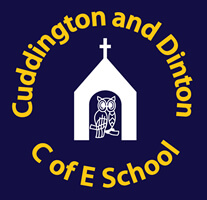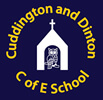Intent
Our English curriculum is ambitious and provides the children with varied opportunities to explore, practise, create, edit and evaluate spoken and written language. We follow The Write Stuff, units of planning based on high quality literature, developed by Jane Considine, a teacher, writer and education consultant. The scheme brings clarity to the mechanics of writing and gives pupils the confidence and expertise to organise and communicate their thoughts, ideas and emotions for a range of audiences and purpose. Our writing lessons take a whole class approach where the less confident children feel supported and enabled to write and the more confident writers can develop their own style and flair.
Implementation
Model texts provide the children with a clear picture of what ‘good’ writing looks like and teachers take a metacognitive approach to their own modelling of sentences in each learning chunk. The modelling of writing by the teacher is key to the Write Stuff process and at each stage, the children are immersed in ambitious examples of text which build on their prior knowledge, challenge their thinking and create a rich bank of vocabulary for them to draw upon in their own writing. Experience days give opportunities for drama, role play and cross-curricular activities that relate to the text.
Grammar, punctuation and vocabulary are taught contextually within each writing unit.
Within each unit of work, the children undertake a piece of independent writing, combining the tools and techniques they have learned with their own ideas and content. Staff know the children well and, where appropriate, will tailor these writing opportunities to individual pupils’ needs, class interests and cross-curricular learning. Time for drafting, editing and sharing of writing is prioritised. In KS2 the children publish three pieces of independent writing each school, year.
Structured units of work have been carefully chosen and worked into a Long Term Plan that ensures a progression of content and skills from the Foundation stage to Year 6. Where appropriate and/or necessary, teachers will supplement and adapt The Write Stuff with a range of other writing opportunities focusing on a particular skill, text or visual stimulus. Targeted interventions support specific areas of weakness.
Workshops are provided for parents to explore and experience the writing process so that they are better able to support their children at home.
In KS1 spelling is taught through the Bug Club Scheme.
In KS2 Spelling is taught through the Spelling Shed Scheme of work. Each class has a dedicated spelling lesson once a week and this is supplemented by spelling activities and games in school and at home. Children are taught an investigative approach to spelling that introduces them to the morphology and etymology of words. Emphasis is also placed on the importance of phonic knowledge, syllables, word families and spelling patterns. Teachers model a metacognitive approach to spelling during writing lessons and encourage co-construction with adults and peers.
Where appropriate pupils who are falling behind their age-related expectations are supported through interventions, allowing them to be exposed to the whole class teaching of ambitious and age-appropriate vocabulary.
Impact
Children enjoy writing and view it as a purposeful vehicle for the communication of their ideas and emotions.
Children enjoy talking about and sharing their writing with adults and their peers.
Writing is valued and celebrated throughout the school.
Children make good or better progress in writing and leave our school as confident and enthusiastic writers who read to write and write to read.

